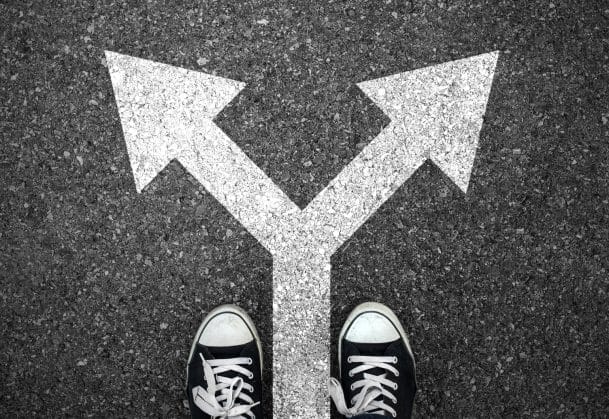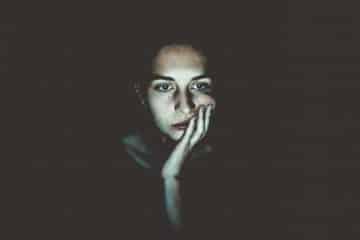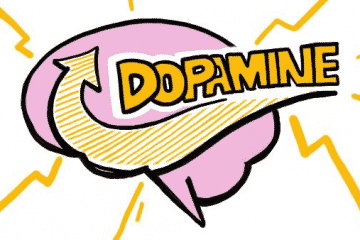What is moral choice?
The problem of morality is one of the key issues in philosophy. What is a moral choice? No, this is not an abstract notion cut off from life. Morality is closely linked to social experience. And this experience is a necessary element of a person’s professional activity. Growing up, people acquire the wisdom to get out of difficult situations, trying to save face. And this means making moral choices and taking responsibility for your actions.

Why should we talk about the problem of moral choice?
Everyday situations offer many alternatives. A person is faced with the need to make this or that choice. The behavior and actions of people are evaluated through the lens of morality. Thanks to cultural genesis, a person is distinguished by freedom of choice. To implement such a free choice, it is necessary to get rid of external coercion. This is not easy, as people are constantly under the influence throughout their lives. Consciousness, the ability to reflect, and moral responsibility for the actions are values that are acquired gradually.
So, can moral choice be defined? Of course. A moral choice is a person’s decision to act in a certain way. This decision is based on the values of the society to which the person adheres. People’s behavior patterns depend on a number of factors:
- the concept of truth and lies;
- the value of selflessness;
- censure or acceptance of benefits, etc.
Each person has repeatedly found himself in a difficult situation, before the need to make an important decision. Assessing an action as right or wrong can be difficult sometimes. That’s where moral guidelines and standards come in handy. Situations in which characters make choices are a familiar plot basis for literary works.
The problem of moral choice in literature
Further, we will analyze several scenes from famous works of world literature. These scenes demonstrate the problem of moral choice that the characters face. It is obvious that a person’s actions affect his future life.
“The Captain’s Daughter”
Let’s consider the situation from “The Captain’s Daughter”. One of the characters of the story, Peter Grinev, faced a difficult choice. The life of a young man is a chain of events that show the importance of choice. Peter was in mortal danger. The young man was forced to swear allegiance to Pugachev and the rebels. For Grinev, such an act would mean treason, betrayal. Therefore, he risks his life, putting moral values above the fear of physical violence. Peter managed to defend his interests and save Maria Mironova. For Grinev, the life and well-being of a loved one is more important than his own prosperity. That’s why the young man shows great courage and keeps silent in court, protecting Masha.
However, this does not mean that Peter is infallible. So, the main character strikes up a friendship with the rogue Zurin and becomes a gambler, being rude to his faithful comrade Savelich. But morality presupposes constant personal development. Grinev realizes his mistakes, repents of bad deeds, and asks for forgiveness from people whom he offended. Following moral guidelines, Peter returns on the right track, learns how to be merciful, and respect the people around him. The author demonstrates to readers that moral choice is a matter of personality traits, moral convictions, and a person’s mindset.
“Eugene Onegin”
The author of “Eugene Onegin” shows how a moral choice depends on a person’s moral values. For Alexander Sergeevich, morality seems to be synonymous with decency, honesty, and reliability. A highly moral person despises lies, slander, and defends his honor. In real life, people often make mistakes. However, it is important to be aware of the mistake and act according to your conscience. “Eugene Onegin” is a multifaceted work. The writer touches the problems of love, betrayal, disappointment, reckless actions, and mistakes.
At the center of Pushkin’s masterpiece is the fatal mistake that Eugene makes. The character’s deed is associated exactly with a moral choice. Onegin’s actions affect the fate of other characters in the work. The young man is a narcissist. Eugene makes the wrong choice. So, Onegin laughs at Tatyana’s love, and rejects the girl. On the one hand, he did not give the poor girl false hopes. But, on the other hand, Eugene could have acted more gently, without cruelty.
The concept of morality in philosophy
Morality is a topic, interest in which is shown not only by literature but also by philosophy. The issue of good and evil, as well as good and bad deeds, is right in the “jurisdiction” of ethics. And ethics, in turn, is a part of philosophy. The history of mankind does not know a single, universal concept of morality. So, people’s ideas about vices, virtues, values, and ideals have changed in different eras.
Ethics and morality
Today, people often equate the concepts of morality, morals, and ethics. However, this is not entirely correct. For example, a moral is a form of people’s consciousness, a system of norms and ideals, principles and values. A person is guided by morals when committing certain actions. Ethics is a term of ancient Greek origin (derived from the word “ethos”), which literally translates as “home”, “disposition”. For the first time, this concept is touched upon in the works by Aristotle, the famous philosopher of Ancient Greece. In Latin, the term “ethical” corresponds to the word “moral”. In the future, these concepts were detailed and began to mean different things. Ethics now relates to the field of knowledge, morals – to the subject of ethics.
Morality and morals
Now the next question arises: are morality and morals the same thing? German philosopher Friedrich Hegel stresses the non-identity of morality and morals. Moral is a subjective and individual sphere, endowed with a personal meaning. People get this meaning haphazardly, spontaneously, from experience. However, moral is a rather late phenomenon, since we are talking about norms and customs. Before morals, society lives according to the “laws” of morality. Thus, moral choice concerns actions, the practical side of life.
If you want to continue to study the topic of moral values, I suggest reading the article about Ethical Subjectivism and Emotivism.
Modern researchers continue to ponder the problem of morality. The latter phenomenon characterizes human relationships, referring to the ability of people to coexist with each other. Moral choice is a category that describes a person’s actions in relation to other people. Morality in this logic seems to be a universal form of regulation of relations, which extends to each member of society. People are guided by the “golden rule of morality” or the talion principle. Morality and moral choice are characterized by seven key features:
- domination of reason over emotions;
- desire to achieve the highest good;
- goodwill and selfless intentions;
- the ability to live in society;
- humanity;
- autonomy of will;
- mutual fulfillment of social instructions.






every day we are faced with a certain moral choice and we unconsciously make a choice based on our own notions of morality and right actions. As you know, everyone has their own view on things and therefore, morality can be different but not true, that is why humanity devoted an extremely large number of works precisely to posing a moral question and its analysis. Moral choice is an extremely complex issue and definitely depends on the viewer.
How to behave correctly and how to act morally, is the question that millions of people around the world ask themselves. Where did morality come to us why does it exist at all, what is it? In my opinion, this is the boundary that limits our animal instincts, what makes us truly human. Something that came not from evolution but something unknown!